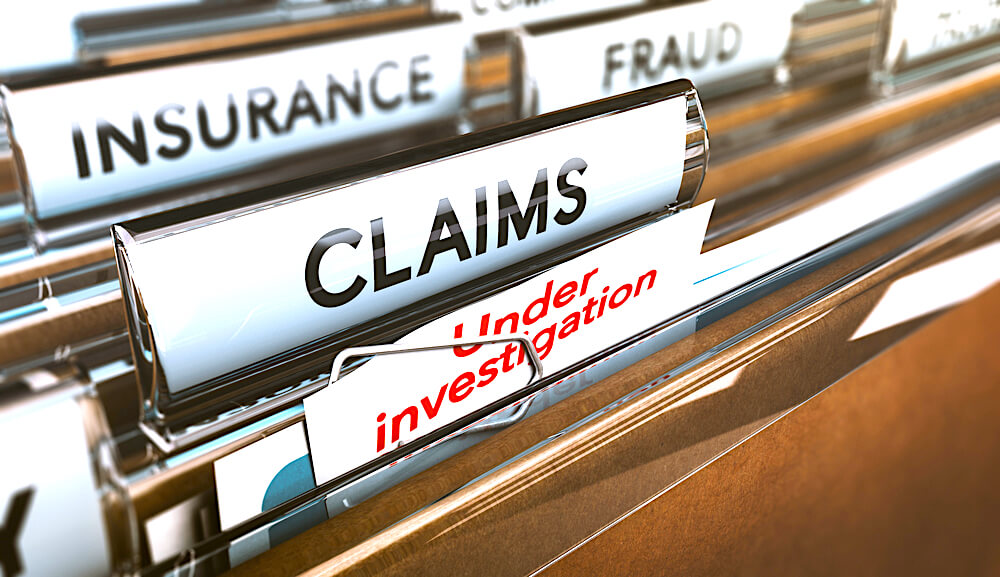Some people have too much insurance coverage. They’re over-insured. Others have too little coverage: they’re under-insured.
Are you underinsured? Are you carrying too little insurance for your assets? Is your home sufficiently protected by insurance? Are you exposed to too much risk?
Right here, we’re explaining everything you need to know about being underinsured, including how to avoid being underinsured.

Is My Home Underinsured?
Most homes in the United States are underinsured. Nationwide estimates suggest that approximately two thirds of American homes have too little insurance.
Some homes are underinsured by 60% or more. The average home is underinsured by about 20%.
What does being underinsured mean? Being underinsured means you don’t have enough home insurance to protect your home if it’s damaged or destroyed.
If you don’t have enough home insurance, then you are personally responsible for paying a significant amount of home repair or replacement costs after a disaster.
Let’s say your home and all the possessions inside your home are worth around $500,000. Your home, however, is underinsured by 25%, which means you have $375,000 of insurance coverage. A fire burns down your home and everything inside it. It’s going to cost $500,000 to rebuild your home and replace all of the possessions inside. Your home insurance covers $375,000 of that cost, while you need to pay the remaining expenses out of pocket. If you don’t have an extra $125,000 of cash available, then this could be a big problem.
Be aware of a Coinsurance Clause that may be on your home insurance policy. These typically state that you need at least 80% coverage of the home's total value to avoid any insurance claim settlements being reduced by the percentage that you are underinsured.
How to Avoid Being Underinsured: Top 12 Ways to Avoid Being Underinsured Checklist
Want to avoid being underinsured? Here’s a checklist to ensure you have sufficient coverage.
1. Exceed Minimum Insurance Requirements
Under the terms of your mortgage, your lender will require you to have a certain minimum amount of homeowners’ insurance coverage. This minimum amount should be at least equal to the balance remaining on your mortgage, although it could be higher to cover the replacement costs of your home.
The minimum liability protection you can get for a homeowners’ insurance policy is typically $100,000. Most experts, however, recommend having at least three times that.
If you’re just meeting the minimum insurance requirements set by your insurance company, then you may not be fully protected.
2. Avoid Reducing Coverage and Find Other Ways to Save
You can cut all types of bonus coverage from your home insurance policy to save a few hundred dollars per month. However, it’s often better to save costs in other ways.
Instead of reducing coverage, for example, you may want to raise your deductible. Raising your deductible from $500 to $2,000 can save you $300 per year or more.
Or, bundle your home and auto insurance policies with the same company. Bundling can save 20% per year or more off your home and auto insurance.
3. Update your Policy After New Renovations
Remodeling projects can raise the value of your home by 25%. Unfortunately, many homeowners fail to notify their insurance company after renovations are complete.
This is a problem. After renovating your kitchen and basement, your home may be worth $50,000 more. Your home insurance policy, however, still reflects the original value of your home.
Whether you added a deck, finished a basement, or performed any other renovations on your home, it’s crucial that you update your insurance policy.
Updating your home after renovations is important for more than just personal property replacement. It’s also important for liability coverage. If you added a trampoline or deck to your backyard, for example, and a guest injures themselves on it, then your home insurance may not cover your liability.
4. Take a Photo of Every Room in your Home Once Per Year
Some insurance experts recommend setting aside a certain day every year – say, February 1 – to take a photo of every room in your home.
It’s an easy way to document your possessions and property. In the event of a major loss, you have visual evidence of what your home looked like and what was in your home.
When you make a total loss insurance claim, you’ll want as much evidence to support your claim as possible. Your insurance company will require you to make an inventory of all your lost possessions and their approximate value, for example.
5. Keep a Personal Property Inventory
Your homeowner’s insurance covers your personal property. To make sure everything of value is covered, you should maintain an inventory of your personal property.
Coverage limits for personal property are typically set as a percentage of the policy limit for your home. It’s typically around 60 to 70%. If your home insurance covers $500,000, for example, then you can claim up to $300,000 to $350,000 for your personal property.
Maintaining an inventory of your personal property is one of the best ways to avoid being underinsured. You can see exactly how much your possessions are worth, then get adequate home insurance to cover those possessions.
6. Add Endorsements for Personal Property Exceeding a Certain Amount
Not all personal property is covered by your homeowners’ insurance. If a single personal property item exceeds a certain amount (typically around $2,500), then you may need to add a special rider or endorsement to your policy.
Guns, coin collections, jewelry, art, antiques, and other items are some of the most common personal property endorsements.
7. Assess Your Endorsements and Exclusions
After considering all of the items above, it’s crucial to review your exclusions and endorsements. These are the parts of your policy that either add coverage (endorsements) or remove coverage (exclusions).
We explained personal property endorsements above. You’ll want to add endorsements for any expensive personal possessions.
However, you can also add other endorsements to your home insurance policy to cover certain items. Depending on your insurance needs, you may want to add these endorsements to your policy to avoid being underinsured.
Common Endorsements To Consider Adding
Endorsements add coverage to your home insurance policy in various ways:
- Sewer and Sump Pump Backup: Sewer and sump pump backup claims are some of the most common types of homeowners’ insurance claims, and they’re almost always excluded from standard policies. An average claim costs $15,000. The endorsement should only cost a few dollars per month.
- Special Personal Property Coverage: Your personal property may be covered from named perils – like lightning, fire, or water damage. However, it may not be covered from other perils – your TV may not be covered from power surges, for example. Consider adding special personal property coverage to avoid being underinsured.
- Home-Based Business Coverage: If you have a home office, then your office equipment and property may not be covered.
Common Exclusions To Evaluate
Some insurance companies exclude certain items, while others do not. If you own “dangerous” breed of dog, for example, then some home insurance policies will exclude any liability from these certain breeds.
- Wind and Hail Damage: Depending on your state, wind and hail damage may be excluded from your home insurance policy. If you live in a windy, hail-prone state, for example, then you may need to pay extra to add wind and hail damage coverage to your insurance policy. Check your home insurance policy to verify any exclusions for wind and hail damage. Otherwise, you risk being underinsured.
- Dog Breed Liability Coverage: Certain home insurance policies exclude liability for any damage caused by “dangerous” dog breeds. This exclusion has become increasingly common in recent years. Some insurers, including Liberty Mutual, Nationwide, and Amica, do not discriminate based on dog breed (although they will evaluate your dog based on its history and behavior). Additionally, some states, including Maryland, Pennsylvania, and Michigan, prevent insurers from denying coverage to homeowners based on a specific dog breed (although insurers are allowed to charge higher premiums).
8. Consider Buying Replacement Coverage and Check It Against Inflation
There are two broad types of home insurance coverage: actual cash value (ACV) coverage and replacement coverage. ACV coverage is always cheaper because it covers the depreciated value of your home or contents. Replacement value is more expensive because it covers the cost of actually replacing your home and contents.
That’s an important difference. Unfortunately, many homeowners don’t understand this difference until it’s too late. Having ACV coverage instead of replacement coverage can leave you dangerously underinsured.
Let’s say you have a 50-year old home. Your home is destroyed in a house fire. The cost of building a home has risen significantly over the last 50 years. However, your home insurance only pays you the depreciated value of your 50-year old home and contents. You might get a $100,000 payout, for example, when it costs about $450,000 to build an equivalent home today.
Consider buying replacement coverage, then check that coverage against inflation. Research how much new homes in your area cost. If you lost your home and received a payout from your insurance company, would it be enough to cover an adequate replacement home?
If not, you may want to adjust your insurance to avoid being uninsured.
9. Assess your Liability Coverage
Liability coverage is a crucial component of home insurance. Liability coverage helps with property damage, medical bills, pain and suffering, lost wages, and other damages incurred by individuals injured on your property.
If someone slips and falls walking up to your property, for example, or if your dog bites someone, then your home insurance liability coverage can protect you.
Liability limits typically range from $100,000 to $500,000. Most insurance experts recommend having approximately $300,000 of liability coverage.
Increasing your liability coverage is surprisingly affordable. It may only cost $2 to $4 extra per month to raise your liability coverage to $500,000, for example.
10. Consider Flood Insurance
Standard home insurance policies do not cover flood damage. However, it may be in your best interest to buy flood insurance even if you don’t live in a flood zone. You can view flood zones for any location on FEMA's Flood Map Service Center.
The only way to buy flood insurance in the United States is to get it through FEMA’s National Flood Insurance Program (NFIP) or an insurance company that works with the NFIP.
Approximately 1 in 5 flood insurance claims come from areas considered low-to-moderate risk flood zones. If you live near a body of water, or if you are at or near sea level, then flood insurance could be a smart investment.
11. Consider Umbrella Coverage
One final checklist item to avoid being underinsured is to consider your umbrella coverage. An umbrella policy can provide up to $5 million of liability coverage to protect your assets from being seized in a lawsuit. If you have significant assets, then umbrella coverage is crucial.
12. Review your Home Insurance Policy Every Year
Many homeowners treat their home insurance policy as a ‘set it and forget it’ item. They’ve bought home insurance. They pay their premiums. They never check it or compare home insurance policies again.
Instead, it’s important to review your home insurance policy every year. Check to make sure you have sufficient insurance coverage. Go through all of the checklist items above. Ensure you have the right amount of home insurance.
Plan Today To Avoid Dismay If You Have An Insurance Claim
Many homeowners don’t realize they’re underinsured until it’s too late. Don’t make this mistake and wait to find out when you are dealing with a large loss insurance claim.
Check to make sure you have enough insurance on your property. It’s a simple process that could make a life-changing difference when you need insurance the most.
Read More Here: Home Insurance: Am I Underinsured? How to Avoid Being Underinsured





